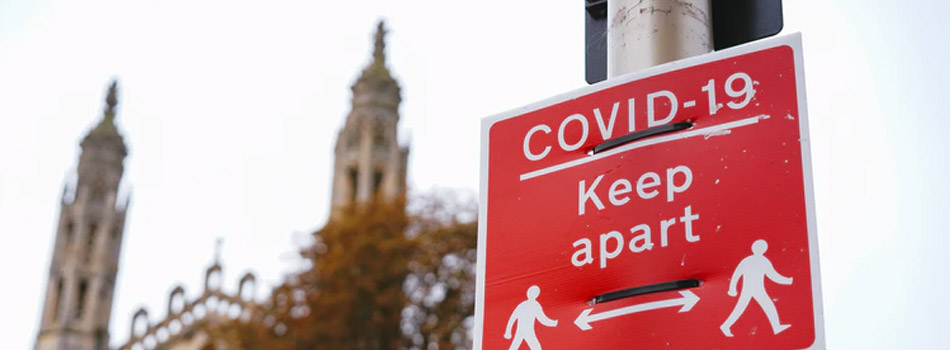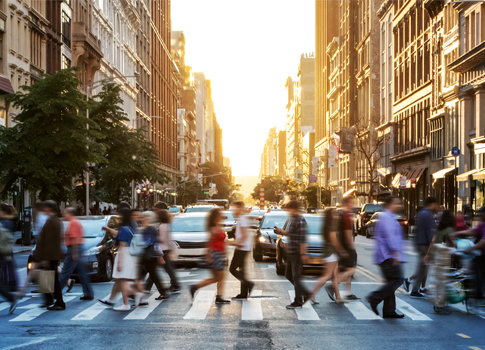Ever since Boris Johnson unveiled the roadmap out of lockdown, June 21st – “freedom day” – has been etched into the public consciousness. However, the full reopening of society now hangs in the balance, due to the spread of the Indian variant of Covid-19.
If restrictions remain in place after this date, if life doesn’t return to normal as promised, how can the government ensure that people continue to follow the guidance?
One core strategy is to convince people that keeping restrictions in place is the sensible thing to do. For example, providing intuitive, simple, science-led justifications could help build support for the restrictions. However, even if clear communication helps move public attitudes and intentions in the right direction, is this enough to ensure people follow the rules?
While gaining public support is important, it’s not the full story. People often act in ways that do not align with their knowledge, values, attitudes and intentions. You just have to look at the number of unfulfilled New Year’s resolutions and abandoned gym memberships to see there is more to enacting a behaviour than intention alone. Being supportive of restrictions will not always translate into adherence to the rules.
Behavioural scientists call this the intention-action gap. Instead of being entirely rational, human decision-making is biased by unconscious mental processes, or shortcuts. These biases influence our behaviour just as much as our attitudes and intentions. Therefore, it’s not enough to change people’s attitudes, we also need to understand those biases and how they impact behaviour.
Behavioural science has identified many ways to close the intention-action gap, two of which are below.
Social norms
One of the most powerful drivers of our behaviour is social norms. We intuitively take other people’s behaviour as a guide to how we should behave. On the whole, it’s a good strategy – following the crowd is a quick and efficient rule of thumb, often leading to safe and acceptable choices in terms of physical and social consequences.
But social norms can also work against us. If negative behaviour is highlighted, then that problematic behaviour is normalised, making it seem acceptable and even exacerbating it.
Recently, we have seen politicians blaming the public for “flouting” and “brazenly defying” Covid restrictions which has normalised non-adherence to restrictions. Similarly, media stories highlighting “Covidiots” and house parties have contributed to the overall impression of defiance and ‘pandemic fatigue’. This perception that “everybody is breaking the rules” can be hugely damaging, as it leads to yet more rule breaking.
Instead of spotlighting those who aren’t complying, the government, media and public figures should focus on the vast majority of people who do follow the rules. Because contrary to popular belief, for many of the Covid restrictions, adherence has been very high; according to research from UCL, over 90% of people adhere to hygiene measures, social distancing and mask wearing. It’s less headline-grabbing, but focusing on the remarkable resilience of the majority is going to be critical if we want people to keep following the rules after June 21.
Make it easy
Another way to close the intention-action gap is to remove the barriers to desirable behaviour. Put simply, if we can make it easier for people to carry out an action, they are more likely to do it.
One area where we do see low rates of compliance is self-isolation. Despite people being largely supportive of self-isolation following a positive Covid test or contact with a confirmed case, adherence is worryingly low.
It’s not that surprising. Self-isolating is hard, particularly if you risk losing your income. How can you self-isolate if you live in crowded accommodation? What if you have caring responsibilities? And what about access to food and essentials, not to mention the impact on mental health?
Increasing compliance with self-isolation isn’t about convincing people it’s important; they already know that. It requires an understanding of the barriers people face and targeted strategies to help overcome them. The government is piloting a scheme to do just that. In partnership with local authorities, they are trialling a range of initiatives to make self-isolation easier, for example providing alternative accommodation for people in crowded households, social care support for vulnerable adults and ‘buddying’ services for people whose mental health has been affected by lockdown.
No matter what happens on June 21, self-isolation will continue to be critical in our fight against Covid-19. The government’s recognition of just how challenging self-isolation is will identify ways to support people to make it easier for everyone to keep doing their bit.
Throughout the pandemic the British public have made tremendous sacrifices and played their part whenever necessary – social distancing, self-isolating, getting tested and now, getting the jab. Continued support and recognition of these efforts is crucial to keep us all following the rules.
Our head of behave, Jane Leighton originally wrote this piece for CityAM.






